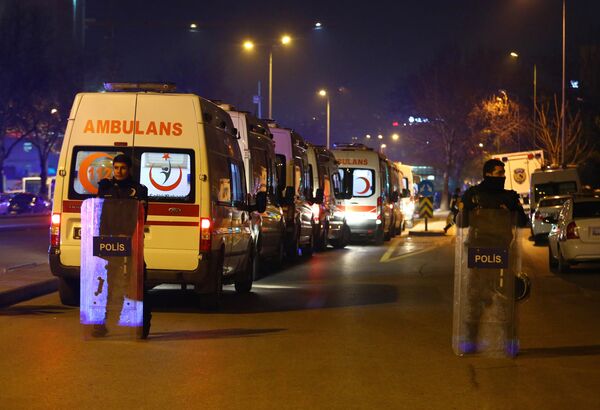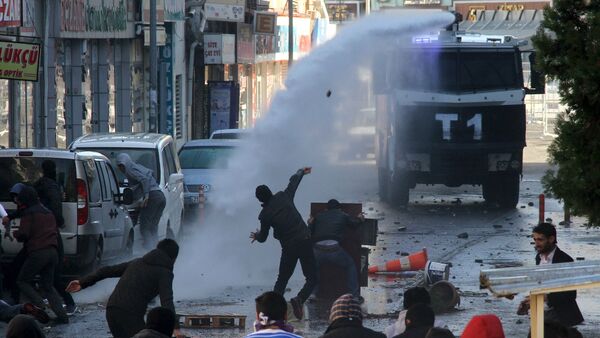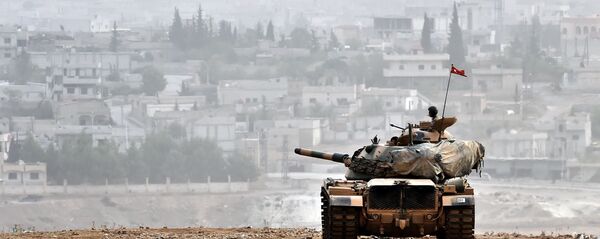Prime Minister Ahmet Davutoglu pinned the blame for the suicide bombing on the Syrian Kurds, although Turkey-based Kurdistan Freedom Falcons claimed responsibility. For their part, the People's Protection Units (YPG), affiliated with the Democratic Union Party (PYD), has denied any links to the assault.

The YPG might seem like the first choice for Ankara, but, according to the expert, there are other forces, which could benefit from destabilizing the country. Those are the ones, who want to discredit the Kurds or wish to change the parliamentary system of government to a presidential one, he suggested.
"Reckless policies of the Turkish leadership, which supports various terrorist organizations," have contributed to "the Turkish society becoming more radicalized," Areshev told Gazeta.ru. "In this context, it is not inconceivable that terrorist groups, formally and ideologically affiliated with Daesh, could be linked to the [recent] terrorist acts."
Recep Tayyip Erdogan and his supporters view the Kurds, living in Turkey and elsewhere, as a threat to the country's territorial integrity and stability. The situation is further complicated by the fact that Washington views Kurdish fighters in Iraq and Syria as one of its key allies in fighting Daesh.
"Ankara could consider Washington's desire to protect the Syrian Kurds as a sign that the Kurds would eventually receive their own state," the media outlet observed. This political entity "would allow the United States to create a new area of tensions that would contain Iraq, Iran and Turkey."




